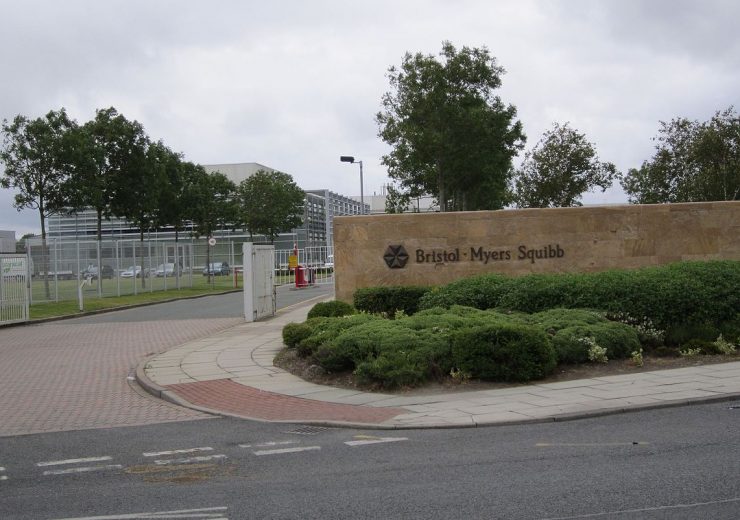The FDA approval expands the role of Opdivo in earlier stages of the disease, with two indications across three types of cancer

Bristol-Myers Squibb facility in Wirral, England. (Credit: Rept0n1x/Wikipedia.)
Bristol Myers Squibb (BMS) has received the US Food and Drug Administration (FDA) approval for Opdivo (nivolumab) as adjuvant treatment for a type of esophageal or gastroesophageal junction (GEJ) cancer.
Opdivo was indicated for completely resected esophageal or GEJ cancer with residual pathologic disease in patients who received neoadjuvant chemoradiotherapy (CRT).
The US FDA has reviewed the regulatory application for the current indication under its Real-Time Oncology Review (RTOR) pilot programme.
Also, the review was conducted under its Project Orbis initiative, which enabled concurrent review by the health authorities in Australia, Canada and Switzerland.
Baylor University Medical Centre immunology endowed chair WW Caruth Jr. said: “Locally advanced esophageal and gastroesophageal junction cancers are aggressive tumour types that often require multiple approaches to address the disease, including chemotherapy, radiation and surgery.
“Even after neoadjuvant CRT followed by surgery, there may be a high risk of recurrence for patients who do not achieve a pathologic complete response.
“In the CheckMate -577 trial, we saw a doubling in median disease-free survival compared to placebo, which suggests that Opdivo could become a new standard of care for these patients. This is exciting news, providing renewed hope.”
The FDA approval is based on results from the CheckMate-577, a Phase 3 randomised, placebo-controlled, double-blind, multi-centre trial that evaluated Opdivo versus placebo.
Phase 3 CheckMate-577 trial enrolled 794 participants with residual pathologic disease following neoadjuvant CRT and complete resection.
In the clinical trial, Opdivo reduced the risk of disease recurrence or death by 31% compared to placebo, and the median disease-free survival (DFS) was twice compared to placebo.
Opdivo is associated with severe and fatal immune-mediated adverse reactions including pneumonitis, colitis, hepatitis and hepatotoxicity, endocrinopathies, nephritis and renal dysfunction.
It also induces dermatologic adverse reactions, infusion-related reactions, complications of allogeneic hematopoietic stem cell transplantation (HSCT), embryo-foetal toxicity; and increased mortality in patients with multiple myeloma.
Bristol Myers Squibb US cardiovascular, immunology and oncology senior vice president and general manager Adam Lenkowsky said: “Esophageal and GEJ cancer patients with residual pathologic disease following neoadjuvant CRT and complete resection face a high risk of disease recurrence; however, the predominant option for these patients has been surveillance.
“Today’s news marks an important step for patients as well as meaningful progress toward our commitment to pioneering immunotherapy treatment options in earlier stages of disease where there is the potential to reduce the risk of recurrence.”
Last month, the company has received the FDA approval for Opdivo, in combination with fluoropyrimidine- and platinum-containing chemotherapy, to treat advanced gastric cancer, GEJ cancer, and oesophageal adenocarcinoma.
